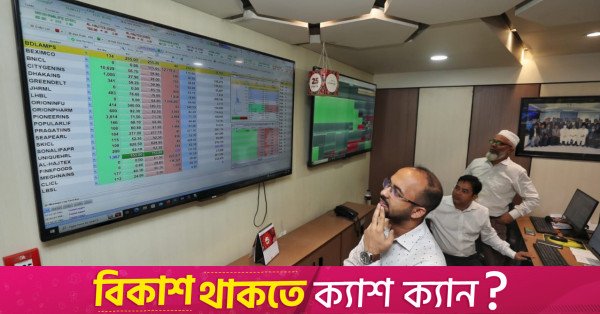According to stock exchange officials, trading at the Dhaka Stock Exchange (DSE) and Chittagong Stock Exchange (CSE) will resume as usual today, starting at 10am and continuing until 2:20pm
When prices fall, investors might panic and make impulsive decisions. This fear-driven behaviour often leads to missing out on potential rebounds and long-term growth opportunities. Photo: Rajib Dhar
“>

When prices fall, investors might panic and make impulsive decisions. This fear-driven behaviour often leads to missing out on potential rebounds and long-term growth opportunities. Photo: Rajib Dhar
The country’s stock market is set to reopen today (15 June) after a 10-day holiday on the occasion of Eid-ul-Adha.
According to stock exchange officials, trading at the Dhaka Stock Exchange (DSE) and Chittagong Stock Exchange (CSE) will resume as usual today, starting at 10am and continuing until 2:20pm. The post-closing session will be held from 2:20pm to 2:30pm. However, official working hours at stock market-related offices will remain open from 9am to 5pm.
Since August last year, general investors have had high hopes for a recovery in the capital market. However, over the past 10 months, those expectations have largely remained unmet.
According to DSE data, during the tenure of the current caretaker government, the benchmark index DSEX dropped by 1,306 points to close at 4,709. The shariah index, DSES, declined by 256 points to 1,029, while the blue-chip index, DS30, fell by 422 points to settle at 1,762.
Turnover has also declined significantly – falling to Tk224 crore from Tk750 crore recorded 10 months ago, marking a decrease of Tk525.5 crore. The market capitalisation of DSE decreased by Tk12,757 crore to Tk6,63,349 crore during the period.
In an effort to revive the capital market and restore investor confidence, the proposed national budget for the 2025-26 fiscal year has introduced several measures. These include widening the corporate tax gap between listed and non-listed companies to 7.5% (from 5%), reducing the advance income tax (AIT) on securities trading from 0.05% to 0.03%, and lowering the corporate tax rate for merchant banks by 10 percentage points to 27.5%.
Despite these initiatives, market insiders remain sceptical. They argue that the government’s commitment to ensuring a stable and vibrant stock market is being undermined by the current leadership of the Bangladesh Securities and Exchange Commission (BSEC).
Many market participants claim that the recent gains in the market are only a brief pause in a longer-term downtrend. They assert that no reform or incentive will be effective unless the current BSEC chairman steps down. Critics note that while the chairman has a background in banking, he lacks the necessary expertise in capital markets, leading to unresolved structural issues.





